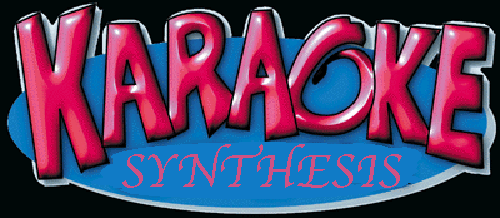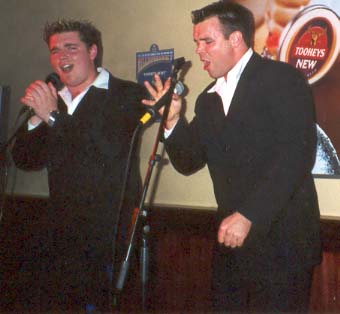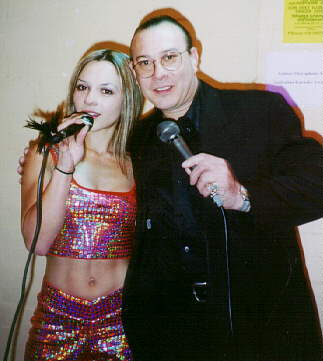

Viewing Karaoke through different lenses produce different
analyses. In each analysis different players in the Karaoke
Night are emphasized and explored. The political Economy
perspective points out the role that the bar owner plays.
The owner is divulged as being interested primarily in the
economic benefits that a Karaoke Night brings to his/her
establishment. This is parallel to the experience of the
landlord in any political economic description of the real
estate business. In “Urban Fortunes” by Logan
and Mollotch we are given a description of the landlord as
responding to market demand and changing his behavior if and
when it will be profitable(Logan and Mollotch, 1988). Like
wise, in the running of a bar, the owner responds to the
phenomenon of Karaoke because they see by example that it
will make them money.
The other important players from a political economic
standpoint in Karaoke Nights are all of the people who are
indirectly affected by the Karaoke night. In other words,
what repercussions are felt from the Karaoke Night by people
who do not necessarily attend the themed space are explored.
This takes into account the way the people who might
potentially live in the area are affected by the changes in
the bar and the community that Karaoke Night causes. It also
takes into account how the surrounding area and the informal
economy of the surrounding street and neighborhood is
affected by the increase of people on the streets at night
because of the bar activity.
Using a cultural perspective to analyze the Karaoke Nights
we are able to understand the draw that the consumers feel
to go to the Karaoke night. This is a perspective that is
important in that without it there would be no way to
critically look at the bar patrons actions. They seem just
like a toy of the bar operators device in the political
economic approach. When we take into account culture we can
see that the Karaoke singer is receiving benefits. They are
not just willingly filling the pockets of the bar owner
without reaping any rewards. They are receiving an added
value to their money when they spend it on entertainment and
drinks at a Karaoke Night.
The Karaoke industry tells us something interesting about
global relationships on a broad level. Karaoke is an example
of multiple flows of information that are happening
globally. The flow of people exposed travelers to Karaoke
abroad and that concept was able to work its way to all
corners of the globe. The flow of technology has allowed
shared knowledge between countries and has produced the high
level of technology know how that allows for such things as
the digital Karaoke box. Manuel Castells refers to these
movements in the modern world as the space of flows
(Castells, 2002). Karaoke is a modern day example of the
globalized economy and culture that we live in today.
Karaoke is a concept that has traveled around the world.
Without the network and communication that has come along
with globalization we in the United States would never be
experiencing a trend that was born in developed in a far off
city in Japan.
This movement of Karaoke from one nation to another is also
an example of what Short and Kim refer to as cultural
globalization (Short and Kim, 1999). This concept is one
observed in many developed and developing cities today. This
is the phenomenon of cities gradually taking on shared
characteristics. This goes for almost anything that could be
in a city. It can refer to similar styles of architecture
that city planners adopt so that you may no longer easily be
able to tell whether you are in the downtown of Tokyo, Japan
or New York City, USA. It also refers to cities beginning to
offer the same amenities. Karaoke is a sure example of this.
A Karaoke lover would have no trouble finding a bar that
offered Karaoke in most cities in Europe, China, the United
States of American, or in the original site of Japan. This
is a prime example for how the theme space of Karaoke is
shaping the theories of Urban Theory by changing the truths
of cities.
One last observance about the nature of Karaoke and its
relation to the world is that it can not be simplified to
the simple act of people liking sing-alongs. Karaoke is
related to many of the important urban changes in the modern
world. It is related to the technology innovation that is
becoming increasingly expected by the consumer and thus
important to capitalism. It is related to the flow of money,
information, ideas and everything else that has been opened
up to movement by advanced capitalism and globalization. It
is related to pop culture, high culture, and the laborer. In
a word, it is related to the everyday experiences of you and
me.


![]()
![]()
![]()
![]()
![]()
![]()
![]()
![]()
![]()
![]()
![]()
![]()
![]()
![]()
![]()
![]()
![]()
![]()
![]()